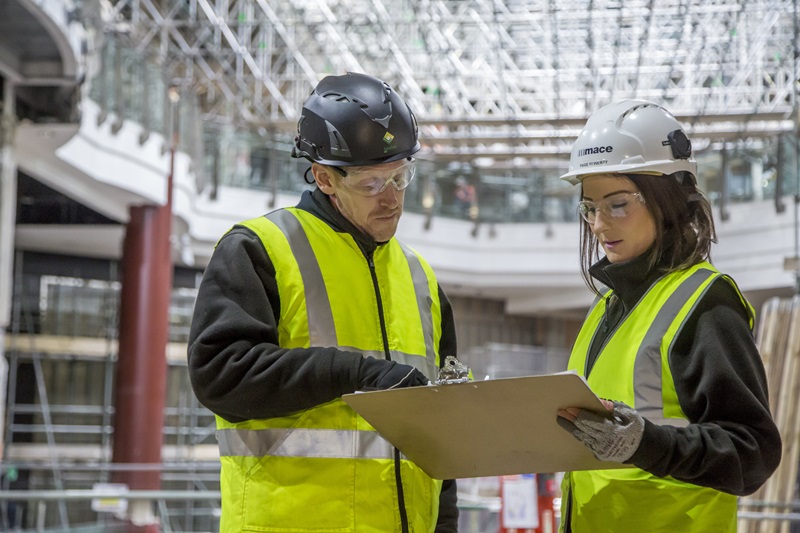Investment in infrastructure is central to unlocking the growth the UK needs
At a moment of profound uncertainty, we must recognise the vital importance of infrastructure in unlocking the growth the UK desperately needs.
In mid-November, our new Prime Minister, Rishi Sunak, will lay out his plan to ensure the long-term financial stability of the UK in a bid to rebuild market confidence in our country’s future direction.
It is a critical juncture for our future, particularly when we know that the Government may be forced into making unpopular and difficult choices.
Whatever your politics, we all must recognise the next few months are key to our shared posterity. As a nation, we must collectively hope that our new PM – the first ever to herald from a Yorkshire constituency - alongside Chancellor Jeremy Hunt will have the courage to push forward with the bold decisions that must be made. While it is hard to envisage a universally ‘good’ answer to the questions that Sunak and Hunt must solve – we know there are certainly some bad ones. And, when it comes to infrastructure investment, the stakes are high.
Earlier in the month, soon after his sudden appointment to the role under former PM Liz Truss, our new Chancellor refused to rule out scaling back or scrapping either Northern Powerhouse Rail or HS2. However, in the past Hunt was a loud proponent of investment in infrastructure.
The arguments against investment have been made repeatedly and loudly by those that would cancel or reduce both programmes. The most prominent argument against major programmes is that the country cannot afford to invest in grand schemes when the macro-economic picture is so difficult. But the warning from the industry is clear – this kind of short-termist thinking will lead to disastrous outcomes.
When you look internationally you can see how major projects, not too dissimilar to Northern Powerhouse Rail and HS2, could be what shapes the future growth of the UK. These projects support sustainable long-term economic activity and will be vital in getting us back into fighting fit economic shape.
Connectivity is critical to link people to jobs, and businesses to workers. Without this, increased productivity and growth statements are merely hot air. No major rail line has been built North of London in over a hundred years and our overcrowded, Victorian rail network is in desperate need of increased capacity. Regional economies, like those of Yorkshire, can only flourish when they have easy access to world class infrastructure and sustainable transport options. It is easy to frame these projects – particularly HS2 – as a vanity investment in faster trains for wealthy commuters; but limited capacity and aging infrastructure impacts us all. It makes it harder for people to travel to their jobs or to holiday domestically, and it pushes more capacity onto the road network while reducing resilience in the rail network.
Not only that, cancelling or reducing these schemes will lead to immediate and long-term damage to the country’s construction and engineering supply chains. There would be jobs losses – likely stretching into the thousands - and an incalculable wasted opportunity to reduce regional inequality. Construction employs more than 8 per cent of the UK population. Our sector is present all over the country, with many in the industry often working in small organisations or as sole traders. Supporting construction SMEs by pushing forward with major projects will quickly spread wealth across the nation, getting money into the pockets of those who need it most.
And, productivity is vital - to enable growth and increase salaried across the UK, there needs to be high levels of efficiency on these major schemes. A smooth process will also enable the realisation of all the economic and societal benefits without delay.
We learnt clearly during COVID that our industry is an ecosystem – you can’t turn off one part and expect the rest to keep operating.
The delivery of a new east to west railway line in the North of England would connect some of the UK’s largest urban conurbations. This will unlock job opportunities and increase the talent pool for jobs which may have been harder to fill with the current skills shortage. So, although it might be convenient to frame infrastructure investment as a simple choice between cuts to front-line services or deciding not to build a new high speed commuter line, that’s a false comparison – to cut planned spend and investment will have a knock-on effect on the livelihoods of millions of people around the country.
Further, the economic benefit unlocked by the construction of large-scale projects is colossal. Last year, HS2 supported 28,000 workers (2,200 of whom had been out of work), 950 apprentices and 2,550 businesses.
Projects like HS2 and NPR are vital for supporting large and small supply chains in Yorkshire and all across the country. Pulling the plug now would kill off thousands of jobs and businesses in a single flourish.
We know that transport infrastructure is crucial for attracting further investment and catalysing regeneration which delivers real social value that lasts for decades.
The new Government has the opportunity to mark their ambition for a globally successful UK – and continued support for major infrastructure projects is a bold way to show their confidence in this great nation. The opposite, a scaling back of ambition on infrastructure, would only make our economic woes worse.
This article was originally published in The Yorkshire Post.












